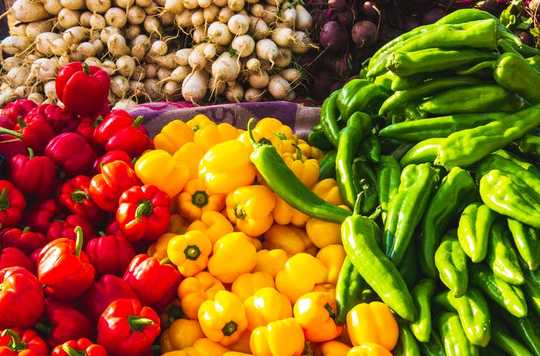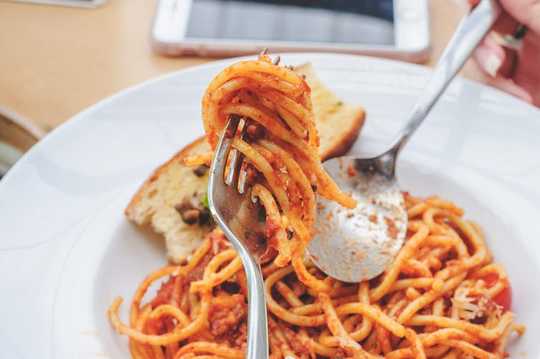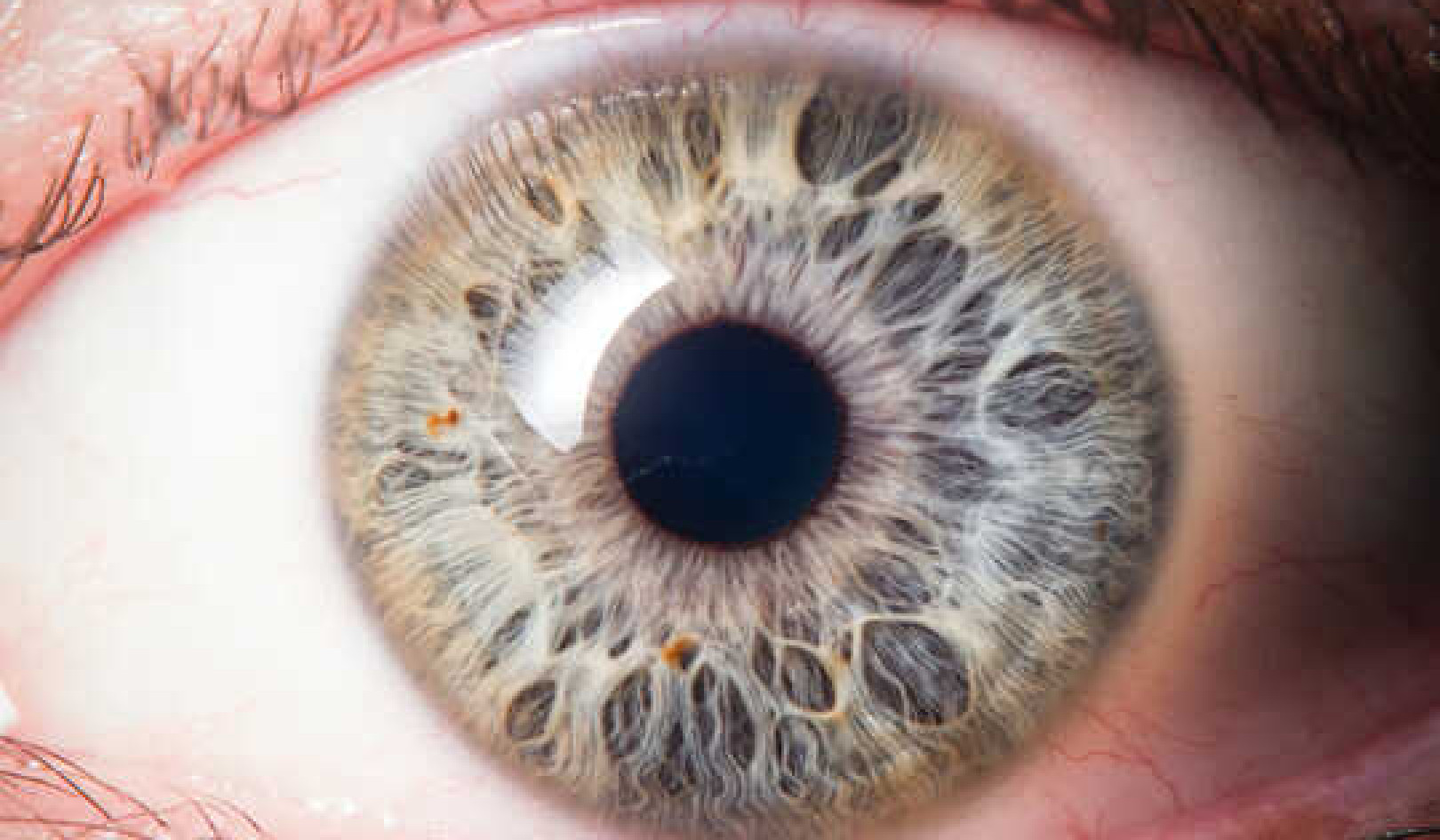Amid the global spread of COVID-19 we are witnessing an increased focus on gathering food and supplies.
We’ve seen images of supermarket shelves emptied of basics such as toilet paper, pasta, and tinned foods. Messages to reassure people there would be continued supply of provisions has done little to ease public anxiety.
Panic buying and stockpiling are likely responses to heightened anxiety, fear and uncertainty about the future. COVID-19 poses an imminent threat.
Being able to exert some control over the situation by gathering goods to store for lockdown is one way individuals seek to manage anxiety and fear, and feel protected. But why do we seek out certain foods, and should we give in to cravings?
 Gathering food supplies might bring feelings of security - but having large amounts on hand is a double-edged sword. Louis Hansel/Unsplash, CC BY
Gathering food supplies might bring feelings of security - but having large amounts on hand is a double-edged sword. Louis Hansel/Unsplash, CC BY
Retreating into our pantries
On the one hand, newly stocked and plentiful pantries, fridges and freezers reassure us that food is readily available and puts supplies within easy reach. At the same time, feelings such as loneliness, anxiety, depression, and stress may increase as we retreat and become housebound. So, we may be more vulnerable to what is referred to as “emotional eating” during this challenging time.
Reaching out for food to comfort oneself is an attempt to manage or alleviate negative emotions. A person’s tendency to emotionally eat can be measured using questionnaires such as the Emotional Eating Scale, which asks about eating in response to anxiety, depression and anger.
From an early age, infants learn to associate feeding with being soothed and social interaction. In everyday life, food is often used to enhance mood or “treat” ourselves. Eating tasty food releases dopamine in our brains, which is strongly associated with desire and wanting for food.
Eating sweet and fatty foods may improve mood temporarily by making us feel happier and more energetic while also satisfying our hunger. However, if comfort eating becomes a habit, it often comes with health costs, such as weight gain.
Research by Mantau and colleagues in 2018 found emotional eating is most likely to occur in response to stress and in individuals who are trying restrict their food intake (“restrained eaters”). These factors were more important in explaining people’s food choices than biological factors such as hunger.
Other studies have also shown that trying to suppress food urges can be futile and have the opposite effect to the desired outcome. For example, dieters have been found to experience strong cravings for the very foods they were trying to restrict.
Doing it tough
Employment insecurity, financial difficulty and hardship due to the COVID-19 pandemic are affecting the lives of many people. Past research has shown that poverty is associated with psychological distress, including higher rates of depression and lower mental well-being. Again, people’s ways of coping with this distress could have further ramifications for their health.
 Setting up healthy habits for this ‘new normal’ time might help maintain balance. Yonko Kilasi/Unsplash, CC BY
Setting up healthy habits for this ‘new normal’ time might help maintain balance. Yonko Kilasi/Unsplash, CC BY
Research shows those in lower socioeconomic circumstances were more distressed, and more likely to turn to emotional eating as a way of coping. This emotional eating was, in turn, associated with increased body weight.
This suggests it is not distress or biological make-up but people’s ways of coping (using food) that may be critical in explaining why some people gain weight in response to stressful life events. People with a history of socioeconomic disadvantage may also find it harder to cope with emotional distress, perhaps due to factors such as lower social support. As a result, they may be more vulnerable to using food as a way of coping.
Toasty crusty goodness
Baking has become a strong theme on social media. The #BakeCorona hashtag has taken off and #QuarantineBaking has over 65,000 posts.
Research suggests there are likely benefits from engaging in cooking. The psychosocial benefits of baking have been shown to include boosts in socialisation, self-esteem, quality of life, and mood. Cooking with children may also promote healthy diets.
By providing and sharing food with other people, baking may strengthen social relationships and make us feel closer to our loved ones. This may explain why it has become so popular in these times.
Coping with lockdown
During this time of social isolation, it’s tempting to reach for food, but a healthy balance remains important.
Creating a “new routine” or “new normal” which includes a variety of activities – exercise, baking, music, reading, online activities, working or studying, relaxing, keeping in touch with friends and family - may help maintain a sense of well-being, and assist in managing meal times and food intake.
Mindfulness meditation practice may be useful in managing emotional eating and weight. Research has shown that Mindfulness Based Interventions (MBIs) are effective in managing emotional eating, reducing weight and improving obesity-related eating behaviours.
Weight management initiatives should encompass psychological factors such as mood and distress. Teaching people to develop positive coping strategies in these challenging times (problem solving, positive help seeking, relaxation techniques) may be particularly effective.
![]()
About The Author
Joanne Dickson, Associate Professor of Psychology, Edith Cowan University and Charlotte Hardman, Senior Lecturer in Appetite and Obesity, University of Liverpool
This article is republished from The Conversation under a Creative Commons license. Read the original article.

Related Books:
Atomic Habits: An Easy & Proven Way to Build Good Habits & Break Bad Ones
by James Clear
Atomic Habits provides practical advice for developing good habits and breaking bad ones, based on scientific research on behavior change.
Click for more info or to order
The Four Tendencies: The Indispensable Personality Profiles That Reveal How to Make Your Life Better (and Other People's Lives Better, Too)
by Gretchen Rubin
The Four Tendencies identifies four personality types and explains how understanding your own tendencies can help you improve your relationships, work habits, and overall happiness.
Click for more info or to order
Think Again: The Power of Knowing What You Don't Know
by Adam Grant
Think Again explores how people can change their minds and attitudes, and offers strategies for improving critical thinking and decision making.
Click for more info or to order
The Body Keeps the Score: Brain, Mind, and Body in the Healing of Trauma
by Bessel van der Kolk
The Body Keeps the Score discusses the connection between trauma and physical health, and offers insights into how trauma can be treated and healed.
Click for more info or to order
The Psychology of Money: Timeless lessons on wealth, greed, and happiness
by Morgan Housel
The Psychology of Money examines the ways in which our attitudes and behaviors around money can shape our financial success and overall well-being.























